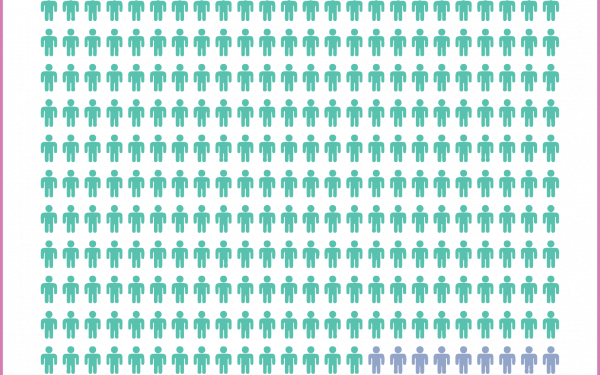This is a man’s world (for now)
The need for the inclusion of other gender in politics
Over the last few years we have seen more conversations about the inclusion of different genders in science, technology, engineering and math (STEM) and their unique experiences and challenges in the male-dominated field. However, those conversations have not spilled into other male-dominated fields yet, such as political science.
The study of political science claims it offers a broad understanding of matters related to the administration of government, yet I find the field is unchallenged in its imbalance.
As a woman studying political science I find it ironic considering how my experience is mostly based upon the interpretation of the male perspective. Consequently, my understanding is founded on the sharp differences between the ‘de jure’ and ‘de facto’ of the female experience within the field of political science.
The “theory” aspect of political science looks at understanding the various relationships, systems of governance and political behaviours through analysis and case studies.
Over the course of a few semesters, I have noticed that the grand majority of the academic literature I was reading was written by men, the majority of my professors were also men and the underlying understanding of political science seemed to be catered to men.
When I first started my studies in political science I had never deliberated or even given thought to the possibility that I was studying in a man’s world. It led me to questioning what that meant for me as a young woman in a world of pale and stale white male academics. What does it mean to be a woman in this field? More specifically, how does my gender shape my education and does this bring forward questions that just aren’t answered in traditional literature?
I have noticed that academic articles mostly talk about matters related to power and competition, however politics affect all aspects of life. Consequently, I feel like the male perspective disregards the social aspect of the study of politics.
The study of political science claims it offers a broad understanding of matters related to the administration of government, yet I find the field is unchallenged in its imbalance.
On the other hand, the “practice” facet of political science highlights the presence of none males in politics and positions of power, and I do consider this a step forward. However, the practice of women joining and participating in politics is not adequately represented in the study of political science. When discussing the topic of international relations in political science the main trains of thought are those attributed to hegemonic power, balancing and mitigating power dynamics as seen through realist and liberal theories found within the study of international relations. Some theories—though they are less common—refer to norms, ideas and beliefs which advocate on how things should be or how we should look at certain topics. This can be seen through constructivist and feminist theories.
Yes, there is a theory of international relations referring to gender balancing, yet is that all the female perspective has to offer? I seriously doubt that. I find it unfortunate that when it comes to discussing women in certain fields, their outlook is often discussed for one class or chapter rather than being part of regular content.
People, no matter their gender, have similarities in their nature, however the way they experience the world is different. Therefore, it is safe to say that we each see and identify with politics differently. Should that not be represented in the literature we read and the way we analyse politics? There are women's perspectives within the field of political science, yet I feel like they are pushed aside because they are not necessarily associated with ideas related to competition. Yes, competition drives politics and is an important approach to the study of politics, regardless it is not the only thing we must study. Political science is dedicated to the analysis of society related to matters of the state, therefore it should consider various outlooks and perspectives that behave and influence politics.
I sometimes find it discouraging, nonetheless it forces me to bring these topics of discussions to the table. This is not to say that we should disregard a more male-dominant or male-centric understanding of politics and political culture, however, the lack of focus on other perspectives is quite frankly bad scholarship. While the female perspective may be more rare that doesn't mean it is less important.
In politics we often talk about representation—the representation of people who are historically overlooked or disregarded. If we can exemplify the interest of the people within government, then we should be able to do it within academia.
This piece is dedicated to the resilient ladies studying political science—while our field is a man’s world for now let’s continue writing so our voices are located in more that one chapter in our textbooks.


_600_832_s.png)



_600_375_s_c1.png)
